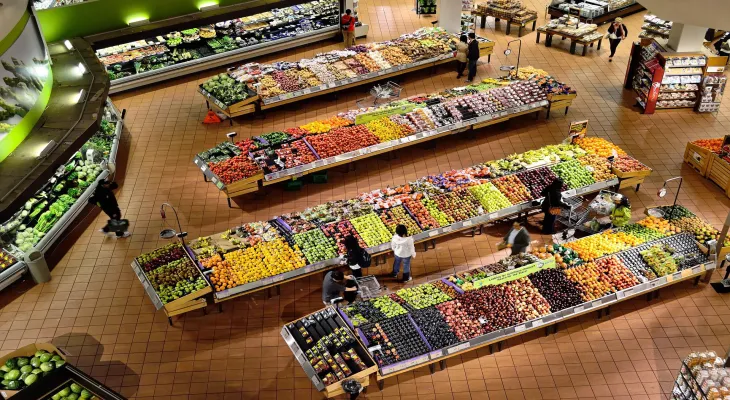Search here
Newspaper
Search here

Arab Canada News
News

Published: May 30, 2022
Three of the four main political parties in Ontario promise to take steps to reduce food prices, but one expert says some key factors driving up costs may be beyond the province's control.
The issue of affordability has been a top priority for Ontario's parties throughout the election campaign, especially as more residents feel strained when buying essential products and groceries.
Statistics Canada earlier this month reported that overall food costs rose by 8.8 percent compared to last year, while Canadians paid 9.7 percent more for food in stores in April, the largest increase since September 1981.
Both the New Democratic Party, the Liberals, and the Greens offer targeted plans to address rising food prices, while the Progressive Conservatives say they will keep costs low and help residents save money through various measures such as cutting fuel taxes.
Liberal leader Steven Del Duca said he has closely watched how food prices have risen, making it "more difficult" for Ontario families to manage their monthly budgets and protect themselves.
If elected, he said his party will eliminate the 8 percent sales tax on all ready-to-eat food items under $20. He will fund the measure by imposing a 1 percent additional tax on companies operating in Ontario with annual profits exceeding one billion dollars and increasing taxes on individual incomes over $500,000.
But Mike Von Massow, assistant professor in the Department of Food, Agriculture & Resource Economics at the University of Guelph, said the plan will not provide "broad support" as only a small portion of food products valued under $20 have recently been taxed in the province.
The Liberals also propose legislation for "fair and open negotiations" between retailers and food suppliers, which Del Duca said would lead to lower prices in the long term.
He added: "We want to make sure that Ontario's local food suppliers can really have a real opportunity not only to sell what they produce but also to do so in a fair way."
Both the NDP and the Green Party have pledged similar commitments to support grocery code of conduct rules to improve industry transparency.
NDP leader Andrea Horwath said Sunday during her campaign in Essex: "We need to make sure that when we have food retailers, especially large chains, they are not colluding to keep prices high because that harms consumers."
Horwath added that the NDP will also create a regional food strategy that includes working with farmers to improve local food access while also supporting agricultural jobs.
Meanwhile, the Greens promise to provide start-up funding, community-owned healthy food markets, and community gardens, as well as a healthy school lunch program for the public school system.
They also say they will invest in research and innovation that improves the sustainability of how food is grown, produced, and distributed in the province.
Cost-saving measures proposed by the Progressive Conservative Party, seeking re-election, include cutting the gas tax by 5.7 cents per litre, expanding the Ontario low-income CARE tax credit, and offering $10-a-day child care by 2025.
Despite the various campaign promises, Von Massow said some root causes behind rising food prices are beyond provincial control, citing extreme weather events and the war in Ukraine as examples.
He noted that Ukraine and Russia make up 30 percent of the global wheat trade, and wheat prices have risen with reduced trade volume.
Von Massow pointed to a "major" drought in parts of western North America, including the prairies. He said the result was an almost 30 percent drop in grain crops in western Canada last year, adding it also impacted the beef industry.
Von Massow also noted ongoing supply chain disruptions due to the COVID-19 pandemic, which have led to increased food prices.
He said: "What we have now is almost a perfect storm of factors driving up food prices across the board."
"If we can't deal with the root causes, then we have to deal with the prices themselves and it will be very difficult without direct support for some basic goods to work on lowering food prices. And it will be very costly."
Edited by: Dima Abu Khair
Comments